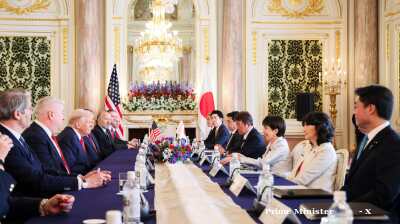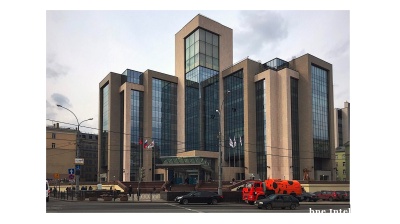Ukraine has accused Russia of using oil and gas supplies to pressure Serbia, saying Moscow is repeating tactics it previously deployed against Kyiv, Danas reported on October 27.
Russia is refusing to sell its stake in Serbian Oil Industry (NIS) following US sanctions imposed earlier this month. It has also delayed granting Serbia a long-term gas supply deal, a move some see as an attempt to maintain leverage in negotiations over NIS’s future ownership.
Ukrainian Ambassador to Serbia Volodymyr Tolkach told Serbian daily Danas that Russia is refusing to sell its stake in NIS to maintain leverage over Serbia and preserve its influence in the Balkans.
“This feels like déjà vu. The energy blackmail we experienced in Ukraine is now happening in Serbia. The refusal to sign, and constant delays in long-term agreements, citing various excuses — all timed for the onset of winter — is familiar to Ukrainians. We’ve been there,” Tolkach said.
He added that Russia often keeps partners in prolonged uncertainty and that in Ukraine, “everything began with economic blackmail”.
The accusations follow Gazprom’s offer to Serbia of only a short-term extension of their existing natural gas supply contract, instead of the three-year deal Belgrade had sought. Serbia’s President Aleksandar Vucic expressed disappointment after months of negotiations and two meetings with Russian President Vladimir Putin in 2025.
Serbia relies heavily on Russian gas, importing around 3bn cubic metres in 2024. The short-term deal allows continued storage at the Banatski Dvor facility, half-owned by Gazprom, but offers limited long-term security.
Russia’s Ambassador Aleksandar Bocan Kharchenko has dismissed claims that the contract delay signals political pressure, calling it “purely commercial and technical” and reaffirming agreements to ensure stable gas supply at the “best possible price”.
However, there is speculation that Russia’s move may be aimed at retaining influence over Serbia and preserving leverage in the Balkans amid ongoing negotiations on NIS’s future ownership structure.
The US imposed sanctions on NIS on October 9 after months of delays and temporary waivers. NIS is majority-owned by Russian energy giant Gazprom through its subsidiaries Gazprom Neft and St. Petersburg-based firm Intelligence.
News

US-China trade talks deliver breakthrough as markets rally ahead of Trump-Xi meeting at APEC
How and if China will react to a US-Japan rare earths deal remains to be seen but Beijing has said it will suspend its restrictions on rare earth metal exports in what is a move likely to ease pressure on the US tech and defence sectors.

US, Japan sign rare earths deal to ‘secure’ supply chains
The two leaders signed an agreement establishing a framework for cooperation in the mining and processing of rare earths and other essential minerals; a move that underscores growing anxieties over China’s dominance in the sector.
.jpeg)
Mexico secures trade extension with US, averting November 1 tariff escalation
US President Donald Trump and Mexican President Claudia Sheinbaum have agreed to extend a critical trade deadline by several weeks, granting negotiators additional time to resolve 54 outstanding commercial barriers between the nations.

West Africa’s BRVM market cap hits record $21.2bn driven by telecoms, banks
West Africa’s regional bourse hit a record market capitalisation, up 29% YTD, supported by strong performance among telecom and banking stocks, and rising participation from domestic institutional investors.



